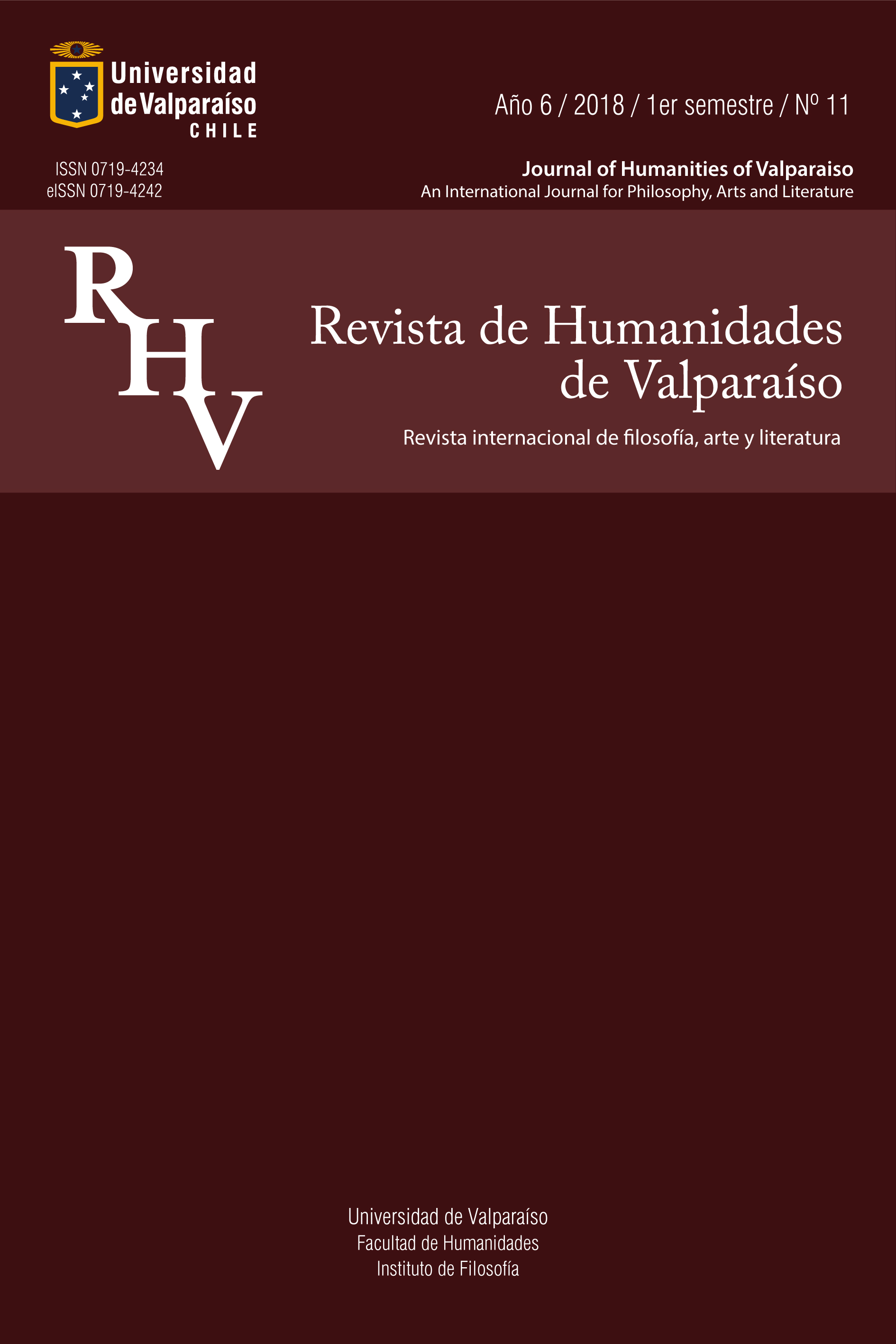La posibilidad combinatoria de nada:una consecuencia para universales inmanentes
DOI:
https://doi.org/10.22370/rhv2018iss11pp75-91Palabras clave:
Combinatorialismo, nihilismo, construcción, estado de cosas de totalidad, universales, D. M. ArmstrongResumen
Este trabajo se centra en la posibilidad de concebir un Nihilismo Ontológico a partir del combinatorialismo de D. M. Armstrong, según lo han sugerido Efird y Stoneham, aunque presentando una estrategia alternativa al denominado ‘argumento de la sustracción’. Según los autores, es posible postular dicho nihilismo mediante las nociones de construcción y estado de cosas de totalidad. Sin embargo, tal hipótesis genera la consecuencia de admitir universales no instanciados en la teoría, es decir, platónicos. Esto último se opone a los requerimientos básicos que fundan la teoría combinatoria, donde ha de imponerse la concepción de universales que únicamente existen en sus instanciaciones. Por ende, asumir una concepción platónica en este ámbito supone un coste muy alto para un naturalismo combinatorio, según el cual sólo existe lo que se encuentra localizado espacio-temporalmente.
Descargas
Referencias
Alvarado, J. T. (2012). "El argumento de sustracción para universales trascendentes". En KRITERION, N° 125.
Armstrong, David M. (1989). A Combinatorial Theory of Possibility. Cambridge: Cambridge University Press.
Armstrong, D. M. (1997). A World of States of Affairs. Cambridge: Cambridge University Press.
Armstrong, D. M. (2004). Truth and Truthmakers. Cambridge: Cambridge University Press.
Baldwin, Tom (1996). "There might be nothing". En Analysis, N° 56.
Coggins, Geraldine (2008). "Metaphysical Nihilism". En Philosophical Books, N° 3, Vol. 49, pp. 229–237.
Effird, D. & Stoneham, T. (2006). "Combinatorialism and The Possibility of Nothing". En Australasian Journal of Philosophy, N° 84, Vol. 2.
Effird, D. & Stoneham, T. (2009). "Justifying Metaphysical Nihilism: A response to Cameron". En The Philosophical Quarterly, N° 234, Vol. 59.
Heidegger, M. (1967). ¿Qué es metafísica? Buenos Aires: Siglo Veinte.
Lewis, D. K. (1986). On the Plurality of Worlds. Oxford: Blackwell.
Nubiola, Jaime (1991). El compromiso esencialista de la Lógica Modal. Pamplona: Eunsa.
Pagés, Joan (2001). "Identidad de tipos y hacedores de verdad". En Crítica: Revista Hispanoamericana de Filosofía.
Rodriguez-Peryra, Gonzalo (1997). "There Might Be Nothing: The Subtraction Argument Improved". En Analysis, N° 57.
Van Inwagen, Peter (1996). "Why Is There Anything At All?: I". En Aristotelian Society, Supplementary Volume 70.
Lowe, E.J. (1996). "Why Is There Anything At All?: II". En Aristotelian Society, Supplementary Volume 70.
Descargas
Publicado
Número
Sección
Licencia
Aquellos autores/as que tengan publicaciones con esta revista, aceptan los términos siguientes:
- Los autores/as conservarán sus derechos de autor y garantizarán a la revista el derecho de primera publicación de su obra, el cual estará simultáneamente sujeto a la Licencia de reconocimiento de Creative Commons (CC BY-NC-ND 4.0 International) que permite a terceros compartir la obra siempre que se indique su autor y su primera publicación esta revista.
- Los autores/as podrán adoptar otros acuerdos de licencia no exclusiva de distribución de la versión de la obra publicada (p. ej.: depositarla en un archivo telemático institucional o publicarla en un volumen monográfico) siempre que se indique la publicación inicial en esta revista.
- Se permite y recomienda a los autores/as difundir su obra a través de Internet (p. ej.: en archivos telemáticos institucionales o en su página web) antes y durante el proceso de envío, lo cual puede producir intercambios interesantes y aumentar las citas de la obra publicada. (Véase El efecto del acceso abierto).






